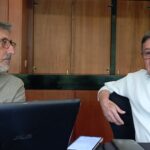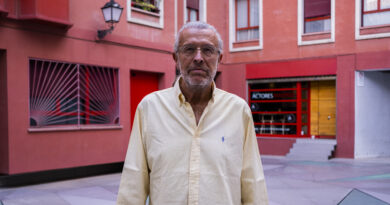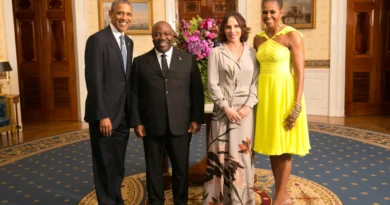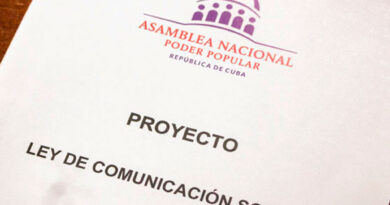A report from the US Congress recognizes the success of Russian media in Latin America
PASCUAL SERRANO
Under the title “Russian influence campaigns in Latin America”, the so-called A few days ago, the United States Institute for Peace (USIP) released a report on the importance of Russian communications policy in Latin America, and especially its international media such as the Sputnik agency and Russia Today television. The USIP is a nonpartisan public institute, founded by Congress, as they say "with the mission of helping to prevent, mitigate and resolve violent conflicts abroad."
Among other things, the report highlights that Russia's communications policies have found fertile ground in Latin America" to "counteract the Western liberal order led by the United States."
They recognize that what Russia has done is, simply, exploit “distrust in the United States by characterizing the latter as intentional in the extraction of resources and supporting economic policies that are unsuitable for Latin America, offering Russia as a friendly and less intrusive alternative.” ”.
As for the Russian modus operandi, nothing different from the rest of the actors in the international theater: “Successful information operations amplify Russian messages through Russia-allied media platforms and networks of influential actors, including journalists, social media influencers. social, diplomatic and intellectuals of both the right and the left.”
The report also recognizes the influence of Russian media to the point of blaming them for “the reluctance of Latin American countries to provide material to Ukraine or to participate in sanctions against Russia.” According to the authors of the document, Russia's campaigns in Latin America (which they call in the report, “disinformation”) “have been active since the beginning of Vladimir Putin's presidency,” and “increased around the Russian invasions.” of Ukraine in 2014 and 2022.”
The authors of the report express their concern when they verify that, despite considering Latin America their backyard and influence, the presence of the Russian media has prevented many of the United States' plans from advancing: “lRelatively low-cost, high-performance information operations have had a significant impact in Latin America. Only one country, Costa Rica, has supported US efforts to impose sanctions on Russia, even though Latin America is a primary sphere of US influence.
The investigation points to the “wayward” Latin American governments: “In January 2023, Venezuelan President Nicolás Maduro, Russia's most important ally in the region, promoted Moscow's top priority in Latin America: the formation of a new Latin America, a bloc, composed of Argentina, Brazil, Colombia and Venezuela, to help create the multipolar economy.”
The report points out how, with the initiative of the Venezuelan president, various progressive governments are freeing themselves from American influence: “Maduro developed the proposal for a new alliance of continental Latin American and Caribbean nations after consulting Brazilian President Luiz Inácio Lula da Silva, Argentine President Alberto Fernández and Colombian President Gustavo Petro, heads of three of the most important countries in the region, which “They have historically been strong allies of the United States but are now friends of Russia.”
The authors of the report clearly express the impotence of the United States and the success of the Russian discourse: “Historical relationships, ideological affinity, and a history of populist authoritarianism help explain why some Latin American countries are receptive to Moscow's nationalist discourse and anti-imperialist messages. and anti-American.”
Without a doubt, the objectives of the report are the two flagships of Russian information, Russia Today television and the Sputnik agency: “with expanding and influential Spanish-language services. “Not only do their operations receive guaranteed funding as part of Putin’s designated ‘strategic Russian information-related enterprises’, they also benefit from the coordination of their operations with those of other state actors, including Russian embassies in Latin America.”
For the United States, historically with a discourse of defense of freedom of expression, when it comes to Russian or related media in Latin America, they become a target of war: “In the Russian model of hybrid or non-linear war, military actions and non-military operations, including information operations, are synchronized, incorporating key principles of warfare as detailed in Russian strategic doctrine. “Russian-aligned media outlets in Latin America are deeply entrenched in the execution of this non-linear war and information operations are a staple of their offerings.”
The document recognizes that in Latin America there is a powerful and underestimated media structure that is not at the command of the United States, an “ecosystem” they call it: "To achieve its often underestimated level of success in Latin America, Russia has built a large and diverse information operations environment that relies on Russian state media in Spanish, Latin American state media, social media allies and websites that align with Russia on key issues. This series of echo chambers is used by actors, almost all of them experienced and disciplined 'super-spreaders' of disinformation.”
These “super broadcasters have transformed the Latin American media landscape.” Unfortunately for them, and as they themselves acknowledge, “in many places, Russian state media are considered legitimate, alternative news sources to the main national, American and European media.”
Next, they try to quantify the influence and audience of Russian media in Latin America, despite censorship measures against them on social networks. They note that “RT is available in all countries on several platforms, including basic television channels, its own website and, before the invasion of Ukraine in February 2022, on YouTube. Since the invasion, YouTube has removed the exclusive Actualidad RT and Sputnik Mundo channels from its platform. The official Twitter accounts and those of prominent members of both channels were labeled as 'Russian government-affiliated media,' but those labels have been removed."
The report's authors acknowledge that the data is not to their liking: "Some data indicates that the Russian media has continued to perform well after the invasion of Ukraine. Current Affairs RT maintains its presence on Facebook and has 17 million followers, and RT Play (focused on “light” news and humor for propaganda purposes) had almost 6,3 million followers as of June 14, 2023. The Twitter account in Spanish Actualidad RT had 3,4 million followers on the same date. Its Spanish-language website had 13,9 million visitors in November 2022. Almost half of the visits came from Venezuela (19,2 percent), Mexico (15,1 percent), and Argentina (14,3 percent ). Although some agreements to share content have been cancelled, RT has developed others, and its programming is attractive due to its high quality.”
They also present studies to assess their influence and observe this panorama of overwhelming superiority of the Russian media in Latin America: “among the top 100 Twitter influencers in the mass protests in Chile and Colombia in 2019, Actualidad RT ranked ninth in Chile and second in Colombia. The Western station with the highest ranking was the German Deutsche Welle in Spanish, ranked 47th in Chile and 44th in Colombia. TeleSur, the main substitute for Russian media, ranked 77th among Colombian influencers and 26th among Chileans. The official US Voice of America, the media closest to the US government, did not appear in the top 100.”
It is evident that this superiority shows the fatigue and distrust of Latin American audiences towards Western American and European media, and even Latin American media that replicate the same line of information. "There are multiple indications that Actualidad RT has taken root in the regional media landscape. In December 2022, three members of his staff received awards for international coverage of Putin's “special military operation” in Ukraine from the prestigious Mexican Journalists Club (Club de Prensa Mexicana). The Russian ambassador to Mexico attended the ceremony and said that the awards 'support our fight against terrorism,'" they point out.
The document does not hesitate to describe the situation in Latin America as a “success for Actualidad RT and Sputnik Mundo.” They desperately talk about their alliances, disseminators, influencers as a perverse macrostructure: “These influencers in turn provide content to a network of traditional media platforms, social media platforms and thousands of websites that link to each other with publications that are made. echo of the Russian-Bolivarian narratives.
Finally, the report itself acknowledges that it aims to offer “recommendations to US policymakers on how to roll back, in an era of limited resources, Russia's extensive expansion efforts in Latin America.” That is, precisely the same thing that the Russian media intends to do but with the United States, “roll back the extensive expansion efforts of the United States in Latin America.”
Once this report is known, it is understood that the United States and the European Union have only one option left to counter the Russian media: ban them, which is what the European Commission has done. Sad evolution for those who presented themselves as defenders of press freedom in the world.
Pascual Serrano is a journalist, media analyst and writer. His last book is "Forbidden to doubt. The ten weeks in which Ukraine changed the world”













